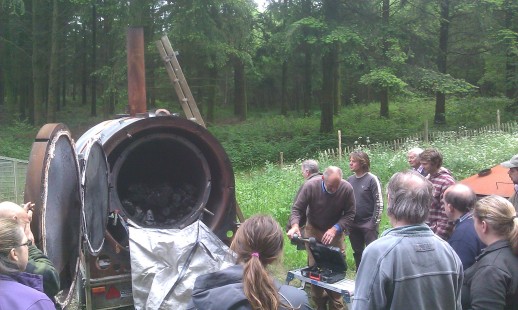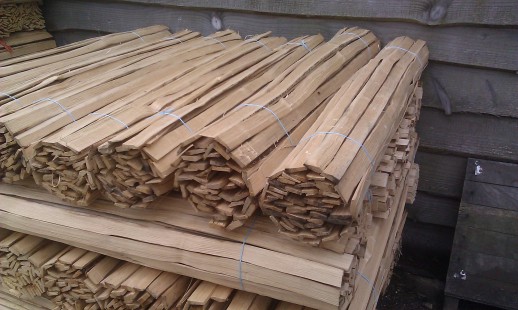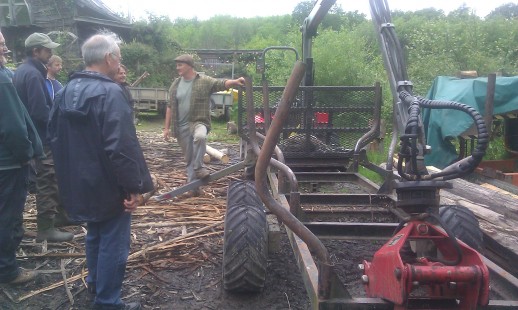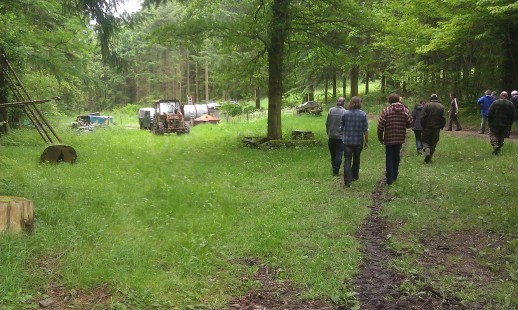The Small Woods Association and The Southdowns National Park Authority teamed up recently to offer a very worthwhile course aimed at increasing the viability of small businesses in the coppice sector of the region.
The 3 day, ‘Grow your Business’ course was held at the Sustainability Centre in the heart of the Hampshire downs. It was attended by about a dozen coppice workers and small woodland owners who had either been working in the sector, or aspired to work in it. Their aim…. to turn a love of their workplace and vocation into a profitable and sustainable enterprise.
The course was part classroom based, part practical and part site visits.
Conroy Williams took the classroom theory part of the course. He has years of experience of running small businesses, social enterprises and he now specialises in helping small businesses to succeed and grow through his wsxenterprise.co.uk website.
He covered fundamental subjects like:
Identifying your typical customer – how to find them emphasising the importance of modern technology and social media.
Costs – consideration of all costs the business would have, fixed and variable.
Pricing – how to price your product or service to ensure you make a profit
All valuable lessons, it was generally agreed that coppice workers and craftsmen can sometimes be guilty of undervaluing their time and experience when arriving at a price for their product.
Alongside the formal classroom sessions, delegates also took time to make some coppice products with Darren and Les, local coppice workers and craftsmen who specialise in hazel hurdles, thatching spars, oak shingles and framing pegs. This gave an opportunity for attendees to see at first hand the processes involved from cutting to finished product and quiz them on their business models.
The last day was set aside for site visits.
First up was Alan Waters of Wildwood Coppice products. Alan has spent a lifetime in the sector and specialises in charcoal production, pimps for kindling and artisan bakeries as well as riverbank faggots. He is passionate about his products and it shows, although he did emphasise the need for combining this passion with a lot of hard work.

At the other end of the market, a visit to the saw mill yard of English Woodland Timber showed attendees a successful timber milling and marketing business which was established in 1942. Although they do stock a selection of local handmade products, a lot of their business is has gone online and now customers can reach and select individual boards from their comprehensive website. This company has grown through a dedication to customer care and embracing modern technology.

The last visit of the day was to Ben Law’s Prickly Nut Wood. Ben has been making a living from his chestnut coppice in Lodsworth for many years. After beautifully crafting his own house from it’s produce, Ben has completed many more round wood timber framing projects. He now trains apprentices, runs courses and is a prolific author of books on the subject. However he has not lost touch with his main love, the care and guardianship of his woods.

Finally back at the sustainability centre, everyone was given a chance to present their ideas and what they had learnt from the course. The feedback was good and everyone found the 3 days very useful. We often here the expression, ‘ a wood that pays is a wood that stays’ and courses like this go a long way to illustrate just this. Many thanks go to the Small Woods Association and Southdowns National Park who both subsidised the course and made it a very affordable and worthwhile event for workers in the sector to attend.
